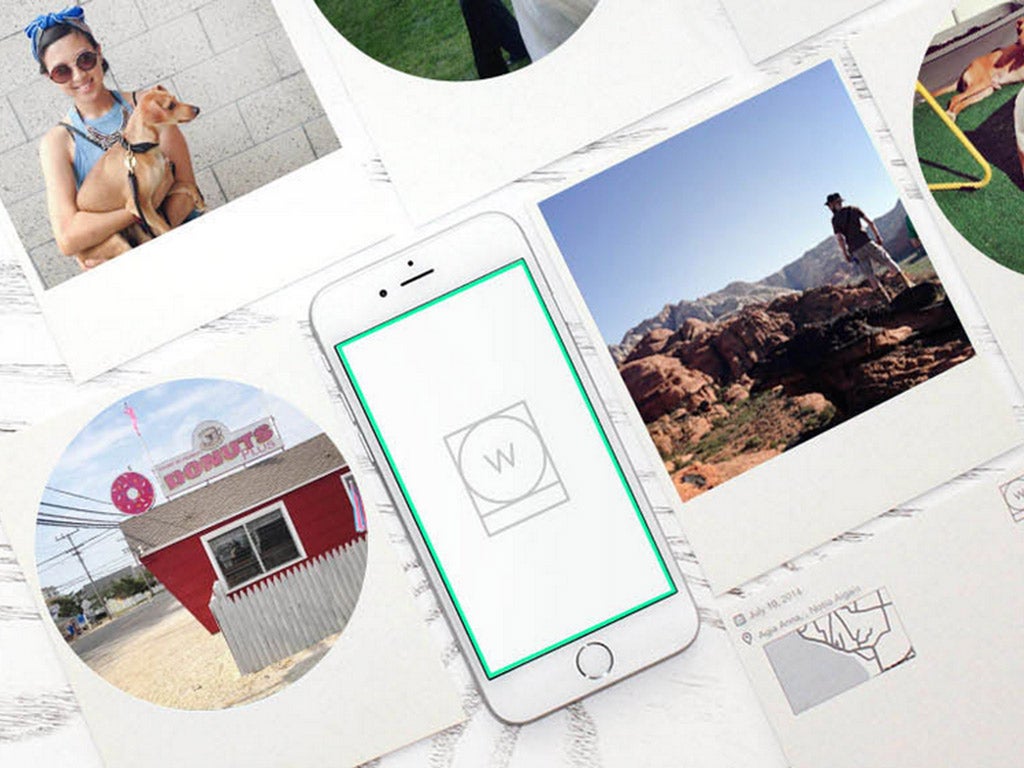WhiteAlbum app harks back to an era of terrible holiday photos
The app gives you 24 chances to take pictures, which you can't see after you've taken them. You then pay $20 (£13) to have the prints delivered to your door

Your support helps us to tell the story
From reproductive rights to climate change to Big Tech, The Independent is on the ground when the story is developing. Whether it's investigating the financials of Elon Musk's pro-Trump PAC or producing our latest documentary, 'The A Word', which shines a light on the American women fighting for reproductive rights, we know how important it is to parse out the facts from the messaging.
At such a critical moment in US history, we need reporters on the ground. Your donation allows us to keep sending journalists to speak to both sides of the story.
The Independent is trusted by Americans across the entire political spectrum. And unlike many other quality news outlets, we choose not to lock Americans out of our reporting and analysis with paywalls. We believe quality journalism should be available to everyone, paid for by those who can afford it.
Your support makes all the difference."So, the way it used to work," I imagine telling a budding teenage photographer, "is that we could only take as many photos as we had exposures in the rolls of film we were carrying with us. We couldn't see the photo after we'd taken it – we had to take it into Boots and wait for them to develop it – and when we got the envelope back and opened it, many of the photos would be terrible.
They'd have labels saying things like: "Quality control: subject too close, allow two-metre distance for fixed-focus cameras." That teenager would probably look at me as if I was describing barbaric scenes of misery from the Middle Ages, and I'd nod at them, as if to say, "I know. Back then, if you'd offered us a device that allowed us to preview pictures, retake them as many times as we liked and adjust the colour balance before storing them in some kind of infinite vault, we'd have wept tears of joy and disbelief."
And yet, here we are, 20 years on, and people over the age of 30 are still complaining like the old gits we are. You see it across digital media; people like myself find ourselves wondering whether things used to be better, whether the technological convenience and flexibility we've been sold actually makes us any happier.
When a friend casually wangs over a 150-track Spotify compilation, I tend to rub my head and wonder whether I'd have preferred a 14-track C60 cassette instead. I must take hundreds of pictures every month, but deep down I worry that I'm never likely to look at them again.
Mindful of this, tech start-ups come up with ideas for us poor saps, as if to say, gently, "here, let us help." For example, you regularly see new apps featuring writing or music that only come out every three months so as not to overwhelm us. Emulating the "old way of doing things" is an identifiable trend in the app ecosystem. And look, here's another one, WhiteAlbum, which harks back to that photographic era where your mistakes were captured for posterity and you paid for the privilege of making them.
This app, released a few weeks ago, gives you 24 chances to take pictures. You can't see them after you've taken them. You point, shoot and hope. When you've taken 24 you pay $20 (£13); and a few days later the prints arrive at your door, ready for you to inspect. It's a well-executed recreation of the way things used to be, but it's more of a philosophical statement than a useful application; it forces us to consider our own digital creativity, and how constraints and freedom change our behaviour.
And if you know you're paying to have your convenience removed, of course your behaviour changes. I know countless musicians who, equipped with hugely powerful recording equipment and access to an almost limitless palette of sounds, struggle to produce anything they're proud of. But charge them £200 for a day in a recording studio with a tin whistle and a banjo and they'd suddenly produce half an album's worth of material.
Kids, naturally, don't struggle as much as older people do, and they'd view WhiteAlbum and its cousins as preposterous. They've never known anything different; they're more plugged in to the digital world, but feel substantially less bogged down by the weight of information and feel no obligation to interact with it – or even acknowledge it. I wish I were more like them, but it's hard to escape the shackles of age. Now excuse me while I dig out my Super 8 camera.
Join our commenting forum
Join thought-provoking conversations, follow other Independent readers and see their replies
Comments